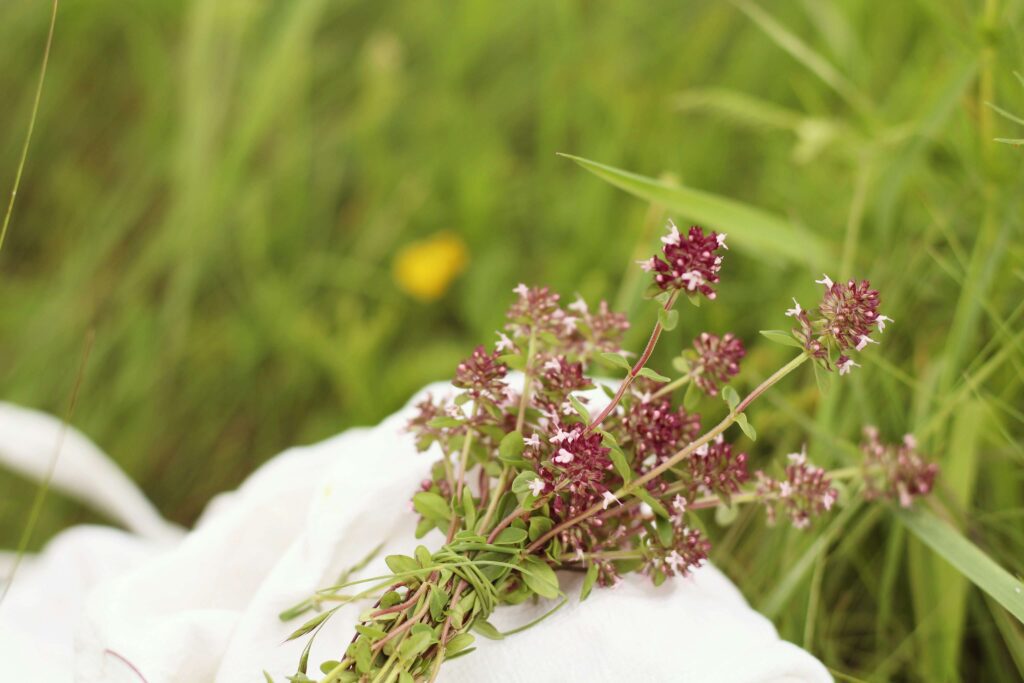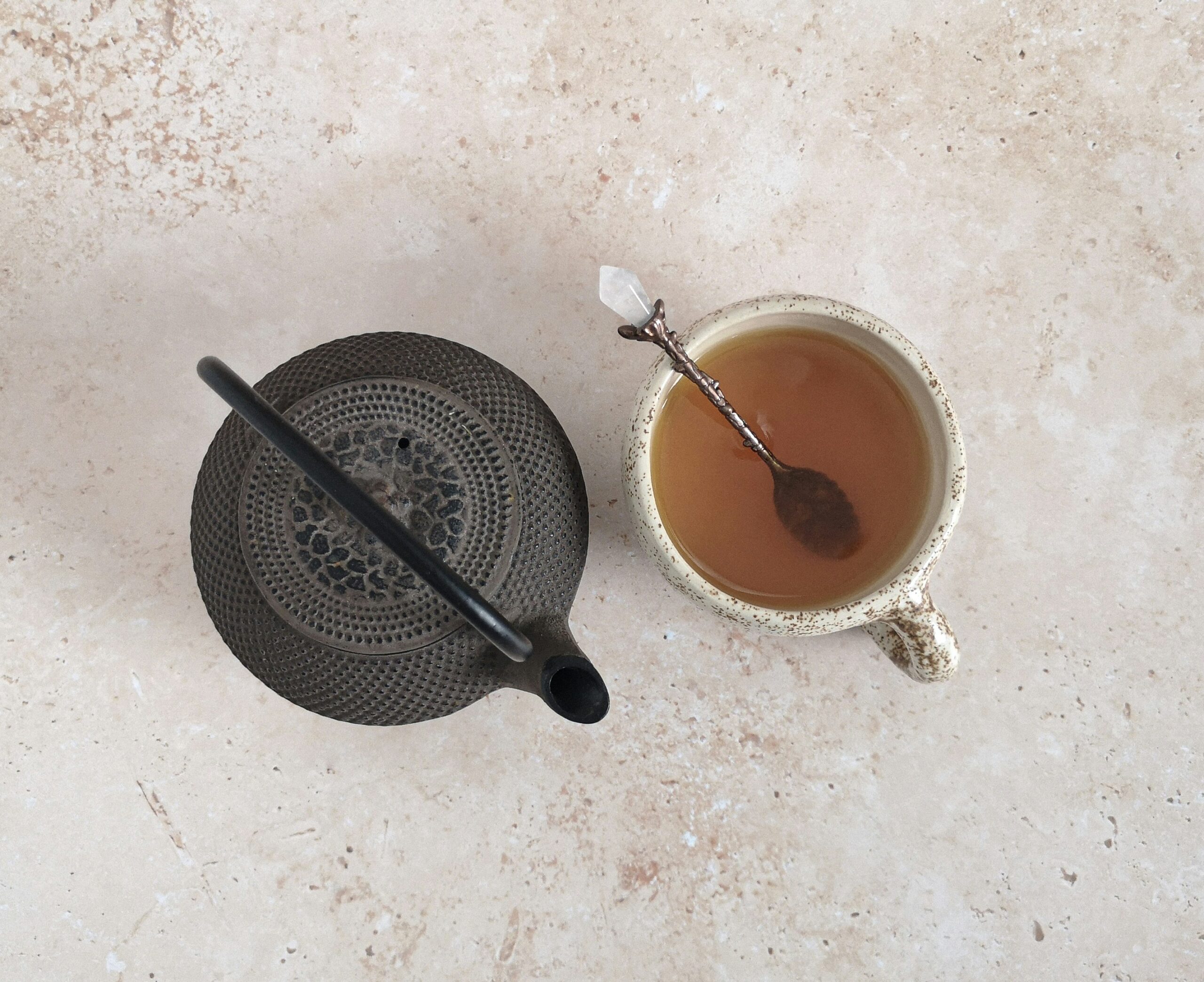
Exploring the potential of herbs to address internal bleeding can be a valuable addition to your understanding of natural health remedies. Many herbal medicines contain properties that can aid in coagulation and support the body’s natural healing processes. This introduction will guide you through the important considerations when using herbal options for internal bleeding, including interaction with medications and potential side effects.
It’s crucial to recognise the role of vitamins and minerals in enhancing the efficacy of herbal medicines. Some natural products may work synergistically to promote healing. It’s important for you to be aware of how these natural products might interact with your existing health regimen. By being informed, you can ensure a safe integration of herbs into your routine.
For those looking to maintain their health with natural anti-inflammatory agents, herbs may offer an attractive option. Balancing safety with efficacy is key when considering herbal medicine. Engaging with herbal options for internal bleeding requires careful thought, but it opens a pathway to a complementary approach to health and healing.
Key Takeaways
- Herbs can aid coagulation and support healing.
- Vitamins and minerals enhance herbal efficacy.
- Safety and interaction awareness is crucial.
Understanding Internal Bleeding
Internal bleeding occurs when blood leaks from blood vessels inside the body, potentially leading to serious health complications if not addressed. Recognising symptoms, understanding causes and mechanisms, and being aware of health impacts is vital.
Signs and Symptoms
You may not see visible signs immediately with internal bleeding, making it a silent threat. Common symptoms include dizziness, weakness, and unusual bruising. Abdominal pain or swelling, confusion, and fainting can indicate severe cases. Watch for symptoms like severe headache or blood in urine, as these may signal urgent concerns. Mild cases might only cause fatigue or lightheadedness, but these can be misleading.
Common Causes
Trauma is a frequent cause, such as accidents or falls. Conditions like haemophilia or other bleeding disorders increase risk. Certain medications, especially blood thinners, may lead to spontaneous bleeds. In some cases, gastrointestinal issues like ulcers or cancer can trigger internal bleeding. Pregnancy complications, such as ectopic pregnancy, are serious causes.
Mechanisms of Haemorrhage
Internal bleeding can result from haemorrhages due to ruptured blood vessels. This is often because of physical injury or underlying medical conditions that affect blood clotting. Damage to organs like the liver can release blood. When a vessel bursts, blood pools internally, potentially compressing organs and tissues, disrupting their function. Hemorrhagic fevers caused by infections are another mechanism.
Impact on Health
The body’s ability to function properly is compromised by internal bleeding, leading to complications ranging from anaemia to organ failure. Severe cases might result in shock, a life-threatening condition. Long-term issues like tissue damage or major bleeding can have significant health implications. It’s crucial to detect and manage internal bleeding promptly to reduce the risk of serious outcomes.
Herbal Medicine Overview
Herbal medicine, a practice rooted deeply in history, continues to serve as an essential part of health care worldwide. You will discover how different cultures have embraced the use of natural products, including herbal supplements and botanicals.
History and Usage
Herbal medicine dates back thousands of years, with its origins traceable to ancient cultures who relied heavily on natural remedies for treating ailments. Traditional Chinese and Ayurvedic medicine are prime examples, where botanicals form the bulk of treatment protocols.
In modern times, herbal supplements have gained popularity as consumers seek natural alternatives to pharmaceuticals. These supplements offer various health benefits and are widely available in different forms, such as teas, capsules, and tinctures. It’s crucial to use these products appropriately, considering their potential impact on platelet function and other bodily systems.
Principles of Herbal Treatments
Herbal treatments operate on the principle of using natural substances to restore balance and enhance the body’s intrinsic healing capacity. These products often contain complex mixtures of active compounds that target various physiological processes.
Plants such as ginseng, echinacea, and curcumin are commonly used for their purported health benefits, including their roles in hemostasis, anti-inflammatory, and immune-boosting properties. When integrating herbal medicine into your routine, it’s essential to consider any interactions with conventional medicines and consult health professionals, especially when dealing with conditions like high blood pressure.
Understanding the benefits and limitations of herbal medicine allows for informed decisions regarding their role in contemporary health management.
Key Herbs for Coagulation and Clotting
Certain herbs can help promote blood coagulation and clotting, providing support for conditions involving internal bleeding. This section highlights five key herbs known for their potential to aid in these processes.
Yarrow
Yarrow is widely recognised for its ability to assist in blood clotting. Its effectiveness stems from its astringent properties, which can help constrict blood vessels and reduce bleeding. You might find yarrow particularly useful in treating minor internal bleeding due to its haemostatic abilities. Historically, yarrow has been used in traditional medicine to help stop bleeding and promote wound healing. Yarrow tea or poultices are common forms of its application, allowing the active compounds to target affected areas effectively.
Horsetail
Horsetail is valued for its silica content, which plays a critical role in strengthening blood vessels and supporting haemostasis. This herb helps improve collagen production, contributing to tissue repair and stability, indirectly aiding in the coagulation process. Its diuretic properties can enhance the removal of excess fluids, potentially reducing the risk of further complications. You may consider using horsetail extracts or supplements to assist in maintaining vascular health and improving overall blood clotting function.
Ginger
Ginger, a common household spice, holds significant potential in modulating blood clotting. While it is renowned for its anti-inflammatory properties, it also plays a role in balancing the coagulation process. Studies suggest ginger can help by mildly inhibiting platelet aggregation, thereby reducing the risk of excessive clotting. Its benefits might be most pronounced when used in small amounts, such as ginger tea or fresh ginger, to support circulation and maintain healthy blood flow.
Garlic
Garlic is known for its blood-thinning capabilities, which can be both a benefit and a consideration for clotting and coagulation. The active components in garlic, such as allicin, may help modulate platelet function, supporting a balanced approach to haemostasis. Consuming garlic in moderation, either raw or cooked, could help regulate blood clotting naturally. However, it’s important to consult with healthcare providers if you’re considering garlic for these purposes, particularly in cases of existing blood disorders.
Turmeric
Turmeric, powered by its active compound curcumin, offers diverse effects on the coagulation system. It is celebrated for its ability to reduce inflammation and help regulate blood clotting. Although turmeric acts as a mild blood thinner, it can also enhance vascular health, supporting the integrity of blood vessels. When incorporating turmeric into your diet, consider curcumin supplements or delicious culinary uses, ensuring optimal absorption with a pinch of black pepper to unlock its full potential.
Role of Vitamins and Minerals
Understanding the roles of vitamins and minerals is crucial, especially when addressing internal bleeding. These nutrients support various bodily functions that are integral to maintaining healthy blood and efficient clotting. Each plays a unique part in your body’s processes, contributing to overall blood health and helping manage bleeding risks.
Vitamin K and Hemostasis
Vitamin K is a vital nutrient that facilitates blood coagulation, also known as hemostasis. It works by activating proteins necessary for blood clot formation, which is crucial when dealing with bleeding disorders. Without adequate vitamin K, your body may struggle to produce enough clotting factors, increasing bleeding risks. You can boost your vitamin K intake by consuming leafy green vegetables, broccoli, and spinach. The vitamin is also synthesised by gut bacteria, providing an additional source, though it may not always be sufficient. To ensure optimal levels, you might consider dietary supplements after consulting with a healthcare professional.
Iron and Blood Health
Iron plays a crucial role in the production of haemoglobin, the protein in red blood cells responsible for oxygen transport. Low iron levels can lead to anaemia, characterised by fatigue and weakness, impacting your body’s ability to manage blood loss during bleeding events. Foods rich in iron, such as red meat, beans, and fortified cereals, help maintain healthy iron levels and support blood cell production. A balanced diet combined with supplements, if needed, can enhance blood health and improve the body’s resilience against internal bleeding. Monitoring your iron levels ensures that your body remains capable of producing healthy blood cells.
Calcium’s Function in Clotting
Calcium acts as an important cofactor in various stages of the blood clotting process. It aids in converting prothrombin to thrombin, facilitating the formation of a stable blood clot. Without sufficient calcium, clotting efficiency may decrease, posing a challenge during bleeding episodes. Dairy products, almonds, and leafy greens are dietary sources that can help meet your calcium needs. This mineral also supports bone health, providing additional benefits beyond blood coagulation. For individuals with dietary restrictions, calcium-fortified foods or supplements might be essential to maintain adequate levels and ensure proper clotting functionality.
Zinc’s Influences
Zinc supports immune function and wound healing, which are essential during recovery from injuries that cause internal bleeding. By facilitating cell division and enzyme activity, zinc can influence the speed and effectiveness of the healing process. Meats, shellfish, and legumes provide dietary zinc to aid in these processes. While zinc is not directly involved in the clotting cascade, its role in tissue repair is valuable. Maintaining adequate zinc levels helps to support your body’s natural recovery mechanisms. If dietary sources are insufficient, supplements can be considered, but it’s important to avoid excessive intake, which may lead to adverse effects.
Natural Anti-Inflammatory Agents
Understanding natural anti-inflammatory agents can provide options for reducing inflammation naturally. Herbs like green tea, fenugreek, chamomile, and aloe vera have been recognised for their anti-inflammatory properties and can be beneficial as part of your wellness routine.
Green Tea
Green tea is not only a popular beverage but also a potent anti-inflammatory agent. It contains antioxidants known as catechins which help reduce inflammation. One of these catechins, epigallocatechin gallate (EGCG), is particularly effective in decreasing inflammation and inhibiting the production of inflammatory substances in the body. You could incorporate green tea as a daily supplement, either as a drink or in capsule form, to benefit from its anti-inflammatory effects.
This versatile herb is also packed with vitamins and minerals, making it a great addition to a balanced diet. Drinking green tea regularly may assist in managing chronic inflammatory conditions. Besides inflammation, green tea supports cardiovascular health and weight management, adding to its overall health benefits.
Fenugreek
Fenugreek is commonly used for its medicinal properties, including its ability to act as a natural anti-inflammatory. Its seeds and leaves contain compounds like diosgenin, which can reduce inflammation and soothe pain. Fenugreek may also influence the body’s inflammatory response by inhibiting the production of certain enzymes that contribute to inflammation.
Using fenugreek as a supplement can be beneficial for those experiencing joint pain or arthritis. You may find it in various forms, including powders, capsules, and seeds for brewing tea. Always consider adding fenugreek to recipes such as curries and soups, which can enhance both flavour and nutritional value.
Chamomile
Chamomile is widely known for its soothing properties, particularly when it comes to inflammation. The herb contains flavonoids that possess notable anti-inflammatory effects. Chamomile can help reduce inflammation in the digestive tract and is often used to alleviate gastrointestinal discomfort. It can also have a calming effect on the body, reducing stress-related inflammation.
For many, consuming chamomile tea serves as an effective, gentle way to experience its benefits. It can also be applied topically to inflamed areas of the skin. As an addition to your self-care routine, chamomile can provide a natural remedy for inflammation and promote relaxation.
Aloe Vera
Aloe vera is famous for its healing properties and is used extensively as an anti-inflammatory agent. The plant contains compounds like acemannan which help in decreasing inflammation when applied to the skin or consumed internally. It is particularly effective in treating inflammation related to skin disorders, such as acne and eczema.
Aloe vera can be taken as a juice or supplement to aid in relieving internal inflammation. You might use its topical applications to heal burns or irritation. Apart from its anti-inflammatory properties, aloe vera supports digestive health and can boost overall hydration.
Interactions with Medications
When considering herbs for internal bleeding, it’s vital to understand how these interact with various medications. This is especially crucial for those on anticoagulants or blood thinners, such as warfarin. Certain herbs possess properties that can either enhance or inhibit these medications’ effects, impacting blood clot prevention and cardiovascular health.
Herbs and Blood Thinners
If you are using blood thinners like warfarin, you should be aware that certain herbs can enhance the anticoagulant effect. For instance, ginkgo biloba has been known to potentially increase bleeding risks when combined with these medications. Herb-drug interactions can lead to unexpected complications, so ongoing monitoring and consultations with health professionals are advised.
Additionally, some herbs might counteract the effects of blood thinners, complicating the management of blood clot prevention. Therefore, it is essential to maintain communication with your healthcare provider when considering herbal supplements alongside prescribed medications.
Herbal Impact on Heart Medications
For those managing conditions like atrial fibrillation, herbs can influence heart medications’ effectiveness. Herbs with anticoagulant properties may alter heart rhythm regulation drugs. Ginkgo may affect how drugs are metabolised, requiring dosage adjustments to maintain therapeutic outcomes.
Moreover, some herbs may interact with medications that manage blood pressure or other cardiovascular functions, impacting heart health management strategies. These interactions must be taken into account to ensure optimal treatment and minimise adverse effects on heart function.
Antiplatelet Properties of Herbs
Some herbs exhibit antiplatelet properties, which can affect blood clot formation. This influence is significant when combined with medications that prevent clot formation, such as aspirin. Ginkgo and other herbs may contribute to increased bleeding risks due to their natural blood-thinning properties, necessitating cautious use.
Awareness of herbs’ antiplatelet activities is crucial for anyone taking antiplatelet medications. Consistently monitoring these interactions helps integrate herbal supplements safely into your health regimen, ensuring both efficacy and safety.
Considering these potential interactions is essential to maximise health benefits while preventing harmful side effects, allowing you to use both herbal and conventional treatments effectively. Working closely with healthcare professionals can help safely navigate the complexities of herb-drug interactions.
Safety and Efficacy Considerations
When considering herbs for managing internal bleeding, it is crucial to evaluate their safety and efficacy. This involves understanding the quality and purity of herbal products, recognising the associated risks, and ensuring correct dosage and administration practices.
Herb Quality and Purity
The quality and purity of herbal medicines significantly impact their efficacy and safety. Contaminated or adulterated products can pose substantial health risks. Adulteration may lead to a decrease in effectiveness and result in additional side effects. Regular monitoring and third-party testing are essential to maintain product integrity. Choose reputable brands and verify certifications to ensure you are using top-quality products. This care helps in preventing adverse reactions and ensures the intended benefits of the herbal treatments are realised.
Knowing the Risks
Using herbal treatments involves understanding potential risks, such as side effects and herb-drug interactions. Some herbs may affect blood coagulation, leading to an increased risk of bleeding when used with antiplatelet or anticoagulant medications. Monitor symptoms closely and consult a healthcare professional before combining herbs with other treatments. Being informed about the specific interactions can prevent unwanted complications. It is essential to remain vigilant about the possible negative effects herbal remedies might have on your health.
Appropriate Dosage and Administration
Correct dosage and administration are critical for maximising the benefits and minimising risks. Inaccurate dosages may lead to ineffective treatment or increased chances of side effects. Follow guidelines from healthcare providers or trusted sources to establish the proper dosage. Understand the form in which the herb is consumed, whether as a tea, capsule, or tincture, as this may affect absorption and efficacy. Adhering to recommended dosages and schedules ensures a safe and effective herbal treatment regime.
Additional Remedies and Supplements
Key ingredients such as Omega-3 fatty acids, flaxseed, and certain home remedies play an important role in managing internal bleeding. These natural substances can be beneficial when used appropriately.
Omega-3 Fatty Acids
Omega-3 fatty acids, found primarily in fish oil, are known for their anti-inflammatory properties. Consuming these can help reduce inflammation that might contribute to internal bleeding. Supplements can be taken in capsule form, but dietary sources like oily fish are often recommended.
Incorporating fish oil in your diet provides Omega-3 fatty acids that can enhance your body’s healing response. It is essential to consult a healthcare professional before starting any new supplements to ensure they suit your needs.
Flaxseed and Flaxseed Oil
Flaxseed contains beneficial lignans and is rich in omega-3s like alpha-linolenic acid. Considered a good alternative to fish oils, flaxseed can help in managing inflammation. Ground flaxseed can be easily added to foods or consumed in oil form for simplicity.
Regular consumption of flaxseed oil supports cardiovascular health, which is vital in managing bleeding risks. As with any supplement, moderation is key, and individual reactions may vary, so personalised advice from a healthcare professional is advisable.
Home Remedies
Home remedies like applying a tea bag to minor external bleeding areas are popular due to tannins, which act as a natural astringent. Similarly, some herbal solutions, including ginseng, might provide beneficial effects in supporting your body’s response to bleeding but should be used with caution.
The astringent properties of tea bags can temporarily control bleeding by contracting tissues. Although ginseng offers numerous health benefits, its suitability for internal bleeding should be evaluated by a healthcare provider to avoid interactions and unintended effects.
RELATED: Herbs for Lungs Mucus: Effective Natural Remedies for Respiratory Health



Comments +